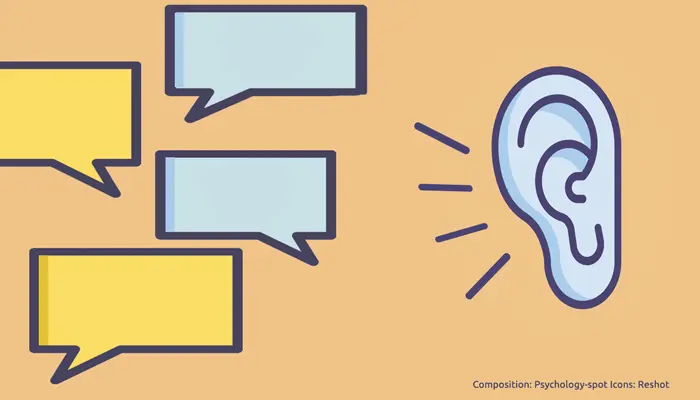
“I just want to help you.” How many times have we heard this phrase? It may sound genuine and full of good intentions, but it is not always what it seems. Sometimes, behind those seemingly kind words, more selfish motivations are hidden.
There are people who give advice not so much to help you, but to advance their own agenda. This advice has ulterior motives, recommendations that come loaded with personal expectations and that, rather than providing clarity and peace, generate confusion, tension and discomfort.
What is biased advice?
It’s happened to all of us: someone close to us offers us advice, but they don’t just share their opinion, they push us in a direction. Sometimes their intentions are obvious: they want us to listen to them. But other times their motives are harder to detect and the manipulation becomes subtle, but insistent.
We must be clear that not all advice is intended to help us make better decisions. There are recommendations that come loaded with urgency, emphatic gestures, and in some cases even a reproachful tone or an insistent tone that leaves us little room for reflection and free decision.
Thomas Hobbes, famous for his work of political philosophy “Leviathan” in which he also addressed many aspects of human psychology, called such behaviors “vehemently biased advice” and described it as “exhortation and deterrence, accompanied with signs in him who gives it, of a vehement desire to see it obeyed.”
In this case, the person giving advice does not think about the consequences for the other person of what he recommends, nor does he reason logically, but is simply motivated by his own feelings. In some cases, it is even likely that the person thinks he is doing what is best for the other person, although in reality his words come from his own desire and pursue a personal objective.
The keys to distinguishing good advice from a hidden mandate
Hobbes believed that we must be able to differentiate between good advice and a command disguised as a recommendation. It is easy to confuse advice with command “because the words ‘do this’ or ‘don’t do this’ are not only the words of him who commands, but also of him who advises and of him who exhorts,” he wrote.
However, we rarely distinguish the difference, so we can end up following rushed advice and falling into the hands of people who try to emotionally manipulate us for their own benefit.
Hobbes gave us the key to distinguish between a mandate disguised as advice and true advice that seeks to guide and help: “a mandate is when a man says ‘do this’ or ‘do not do this’ without expecting a reason other than the will of the one who says it.” As a result, it is evident that the one who commands seeks his own benefit since he does not offer reasons to support his words. “The reason for his mandate is solely his own will.”
Instead, “advice is when a man says, ‘Do this,’ or ‘Do not do this,’ and deduces his reasons from the benefit that would be produced by that to the person to whom he gives it,” Hobbes noted. Therefore, “it is evident that he who gives advice only intends the good of the person to whom he gives it.” The person who gives advice must argue and reason since his goal is to help the other.
So the signs that it is a urgent advice are:
- Few reasons. The person does not provide convincing arguments that show that he or she is the best option for you.
- Inconsistencies. If the person offers arguments, they don’t seem to align with your interests or what the person knows about you.
- Too much enthusiasm or insistence. The person insists that you follow their advice, as if it were the only possible option.
- The benefit is more on their side. If you think about it, it seems that the person who really benefits is the person who advises you, not you.
- Using strong emotions. They appeal to your guilt, fear, or desire to please them to influence your decision.
How to protect yourself from biased advice?
The secret to dealing with these types of situations without giving in to manipulation is to be able to pause before making a decision and reflect more calmly on the advice.
- Listen and reflect. Don’t make rash decisions. Give the advice time to see if it really fits with your worldview and what you really want.
- Ask yourself why. Probe the person’s reasons with open-ended questions like, “Why do you think that would be the best option for me?”
- Get other opinions. If you have an important decision to make, it’s best to listen to several people, especially those you trust or those who have nothing to gain or lose from your choice. This way you can be sure that their advice is not ulterior motives.
Finally, if you feel pressured or manipulated, speak up and stand firm on what you truly believe is best for you. Ultimately, the decisions you make should be your own, not a reflection of someone else’s ambitions or desires. Because listening to others is important, but it’s even more important to learn to listen to your own voice.
Reference:
Hobbes, T. (1980) Leviatan o la materia, forma y poder de una república eclesiástica y civil. México: Fondo de Cultura Económica.




Leave a Reply